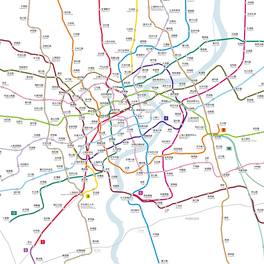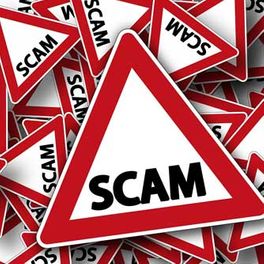Last updated: Nov. 14, 2020
Which cities in China can I travel to by high-speed train?
All major Chinese cities are now connected to the high-speed rail network, with most having very frequent services. The biggest and most well frequented service include those in Shanghai and surrounds (Hangzhou, Suzhou, Nanjing etc.), Beijing and Tianjin, and several other large cities such as Zhengzhou.
Which cities in China can I travel to by train?
Almost every city, and most towns can be traveled to by train. If you're going somewhere that the train doesn't, then you're really going off the beaten path. These days even some quite small cities and large towns are connected by high-speed rail.
Which cities in China can I not travel to by train? (and how to get there)
The only exception to the rule is probably cities in difficult to reach mountain regions. Lijiang is an example of large tourist town in Yunnan Province which isn't accessible by train.
How fast do Chinese trains go?
Trains run up to 350km/h, however this is on certain routes only. Most routes are limited to 300km/p. Note that the Maglev train between Shanghai Pudong International Airport and suburban Shanghai travels at 430km/h, however it's not consider part of the normal rail network, and only lasts 7 minutes.
What’s the best way to get to the station?
This will depend on which city you are in. For major cities, if you don't mind taking public transport I recommend taking the Metro as you know there won't be any delays. Otherwise, just hail a taxi, or ask for your hotel to organise you a transfer.
How early do I need to get to the station?
This depends on whether or not you need to pick up your tickets. If you don't it's normally very straight forward, arriving 39 minutes beforehand is plenty. If you need to pick up your tickets this can be a bit trickier as you don't know how long you will have to line up for. We recommend arriving 1 hour beforehand in this case as it's not uncommon to need to wait in line for 30 minutes.
Are the seats comfortable?
Generally speaking the seats are quite comfortable on high-speed trains, and are roughly comparable to airplane seats. They can recline to quite a reasonable angle, and the legroom is much better than on a plane.
Can I see much from the windows?
Yes! This is why traveling by train is one of the best ways to explore the country if you are a tourist. Having said that a lot of the routes can be quite boring, for example Shanghai to Hangzhou is mainly farmland and factories, however once you pass Hangzhou and get into the mountains some of the scenery is simply fantastic.
Do children travel for free?
Children under 1.2m in height are not required to buy a ticket, assuming they will share a seat with their parents. Children between 1.2 and 1.5 metres high are required to purchase a child ticket (hald price) and will get their own seats. Children taller than 1.5m are required to purchase a full-price adult ticket.
Are there any discounts for seniors?
Unfortunately not
How frequent are the trains?
Trains between major cities are very frequent, leaving every 15 to 30 minutes. However, as an example, while trains from Shanghai to Beijing are leaving all the time, each of them have different intermediate stations, meaning that the stations along the route are not served as frequently
Do I need to speak Chinese to take the train?
Not really. There's plenty of foreigners taking the train every day who can't speak Chinese. The only slightly difficult part is working where to pick up your ticket at the station.
How much baggage can I take on the train?
Technically the limit is 20kg per adult and 10kg per person. In reality though there is practically not limit as your baggage never gets weighed. I've seen people bring enormous amount of luggage on the train which must have weighed more than 50kg, and nobody cares in the slightest.
What can I buy at the train station?
This various from station to station but normally there are a few small convenience-type stores. Larger stations like Shanghai Hongqiao have some sit-down restaurants inside, as well as western fast food such as McDonalds and KFC. The largest stations also have coffee chains such as Starbucks, but don't count on getting a coffee at anything by the biggest stations.
Is there Internet on the train?
There's no Wi-Fi on Chinese trains. Generally the phone signal is strong though, so if you have access to mobile data you can use the Internet. Remember to pre-prepare a VPN if you want to spend the time browsing Facebook!
How to read your Chinese train ticket

How far in advance can I book tickets?
Whilst previously you could book tickets 60 days in advance, lately that limit has been changed to 30 days which is a little bit annoying. For routes which sell ou quickly, it's best if you purchase 30 days before in order to make sure you get your ticket.
Are there toilets on the train?
Yes, every carriage has a toilet available. On high-speed D and G trains this is a Western style toilet, however on older trains this will be a squat toilet which is best avoided if at all possible.
Is food available on the train?
Yes, there is food available on high-speed trains which will be offered at regular intervals by the hostesses. This includes fruit, microwavable meals, icecream and instant noodles. They are however very expensive, so it's best to buy something beforehand. Hot water is available in each carriage.
Can I bring my own food on the train?
Yes, and given the high-prices and limited selection of food available on the trains, it's highly recommended.
Is power available on the train?
Sometimes yes, sometimes no. Some high-speed trains have sockets for every seat, whereas other only have one socket per bank of 3 seats. Old sleeper trains often, but not always, have a single power point per sleeper compartment.
How do I know which station is the best one for me?
This can be difficult to tell. It's not uncommon that the most central train station serves only low-speed trains, and that the high-speed train station is some distance outside of town. However, taking Shanghai as an example, even though most high speed trains leave from Shanghai Hongqiao Station, there are also a limited amount of high-speed trains leaving from Shanghai Railway Station, which might be more convenient depending on hwere you're staying.
Will anyone on the train speak English?
Probably not. I've come across a few in my time on trains that speak English well, and on major high speed routes many can speak some basic "train English", however generally speaking the answer is no.
Do Chinese Trains sell out?
Yes, trains are very popular in China, and the demand grows day by day especially as the service area of the high-speed network continues to grow. It's best to book exactly 30 days in advance if possible, although for most routes booking a few days before is probably fine, except for in the holiday season.
Do I need ID to take the train?
As a foreigner you MUST bring your passport in order to board the train - there's no exception. Locals must bring their government-issued ID card, so the rules are the same for everyone.
How do I know where to get off?
High speed trains will have announcements befor the station in both Chinese and English. Also the LED screen at the front of each carriage also displays English every now and then.
What is the basic procedure when taking a train?
First, generally you need to collect your tickets. While this varies from station to station, the ticket pickup place is usually somewhere outside the station - because you need your ticket to enter. Then show your ticket and passport to enter the station. If there is an electronic entry system, there will be a manual line to one side which can accommodate passports. When you eneter, just like at an airport there will be an electronic board telling you which waiting area you need to be in - every though it's in Chinese you can probably figure it out without too much trouble. After than waiting until your train starts boarding (usually 15 minutes before it departs), and insert your ticket into the turnstyle machine to go enter. After you've found your seat and the train has taken off be aware that there are often ticket/passport checks, this is very normal. Once you get to the arrival station, you will also need to insert your ticket into the turnstyle to exit the station, so don't lose it!
How can I purchase tickets online?
You can purchase train tickets online through Trip.com or through chinahighlights.com. Some of these services will be able to post tickets to you (for a fee), however most you'll still need to pick up your tickets at the station.
What can I do if I need to change my ticket?
Tickets can be changed to other trains, depending on how far before the train leaves you are changing. Tickets can be changed online, unless they have already been printed, in which case they can only be changed at the station.
What can I do if I need to cancel my ticket?
Yes, tickets can be canceled, and will attract a range of fees depending on how far before the train leaves you are cancelling. Tickets can be canceled online, unless they have already been printed, in which case they can only be changed at the station.
How does taking the train compare to flying?
This is, of course, debatable, however there are a lot of people in China who prefer taking a high-speed train rather than flying, including myself. For short journey's the time in actually comparable when you take into account how early you need to get to the airport, and how far out of town airports often are. The other thing in China is that domestic flight are often delayed, while railways rarely are. Having said that, for longer journeys the ticket prices are often roughly comparable, because ticket prices for trains in China as set by distance only. Personally I find taking the train much more confortable than the plane, as you don't have to worry about strict security checks, there's a lot more legroom, I can look out the window while I'm traveling, and I often have power on board making it easy to work while traveling (not to mention phone coverage).
How do I pick up my ticket at the station?
For people who can't speak any Chinese, this can be the most difficult part of the trip, however there is really nothing to worry about. At most stations, you need the ticket to enter the station, so that means the ticket pickup area will be outside the station (Shanghai Hongqiao is an exception to this). First things first, you can't use the automatic machines that Chinese people use to pickup your ticket. Despite the fact the interface often has an English option, they don't accept passports. Find the windows and look for one that says something like "Foreign Guests" or "Passport Service" in English, this will only exist in big cities, but it's your best bet if there is one. In the case that there isn't, look for a window which says Ticket Pickup, usually it will only be labelled in Chinese, look for the characters 取票. In the case that neither of these exist, which is common, just go to the window which says 改签, which means changes in Chinese, they can always print your ticket. When you get to the window yu need to hand over all passports as well as the booking number which will be an E followed by the numbers, or more recently two letter followed by numbers. If you want to practice your Chinese you can say napiao 那票, which means to take your ticket. Don't forget to say xiexie 谢谢 (pronounced share-share), which means thankyou, although don't expect a reaction. There are no fees to collect your tickets at the station. Once you've collected them you can now enter the station.
What are the different types of trains?
There are two types of trains which can be considered high speed, G trains and D trains. G trains are the quickest, traveling at 300-350 km/h max, while D trains often travel between 200-250 km/h (most commonly 250 km/p). Apart from this the trains are virtually the same, although there is no business class on D trains. The next type is train is the K-train, which stands for Kuai, meaning fast in Chinese. Finally a train with no prefix letter is the slowest of the bunch, although there are less and less of these everyday.
What are the differences in seat types on high speed trains?
For high-speed trains there are generally three classes. 2nd class is the "normal" class, and consists of 5 seats in each row, in a 3+2 arrangement. TYpically, seats A, B and C are on one side of the aisle, with D and F on the other. First class and business class are the opposites to on an aircraft, with business class being the top class. 1st class isn't a lot different to 2nd class, except the seats are in a 2+2 arrangement, and are a little wider. Business class seats recline to almost flat and are arranged in a 2+1 configuration. There are only available on G trains and not D trains.
What are the differences in seat types on normal speed trains?
Coming soon...
What should I do if the train I want to book is sold out?
If you don't mind standing for a little bit, you can purchase a ticket for as far along your route as is available. When you're on the train find one of the staff and ask to "bupiao" 补票, which means to extend your ticket. This can be done on all trains, and although you won't have a seat on the last leg of the trip, is a useful strategy if all trains are sold out during the holiday period.
Are there taxi’s available at the train stations?
There is a taxi rank available at train stations in all Chinese cities. In major cities getting a taxi is never a problem, however in small cities it can be a bit difficult at times. Just remember, Chinese taxi drivers almost never speak English, so don't forget to have your address written down in Chinese.
Is there a China rail pass?
Unfortunately not, unlike in Japan there is no rail-pass available, and only single point-to-point tickets are available.
Can I buy a return ticket for China Trains?
No, all China train tickets are one way. While there are some online services which allow you to purchase "return" tickets, be aware that this is actually just two one-way tickets.
What are Harmony and Rejuvenation trains?
These simply refer to the models of the G-trains. Rejuvenation or Fuxing (复兴) is the latest model fully developed in China, and are the only trains permitted to run at 350km/h at current. You can tell if you're traveling on one because the front of the train is marked with a gold stripe, and it is also usually announced if you board the train at the origin station.
Is there anything I can't bring on the train?
Anything which could be considered dangerous like explosives or knives can't be brought into the station. However there are no restrictions on liquids, lighters, electronics etc. like an airport. Just another reason to take the train!



